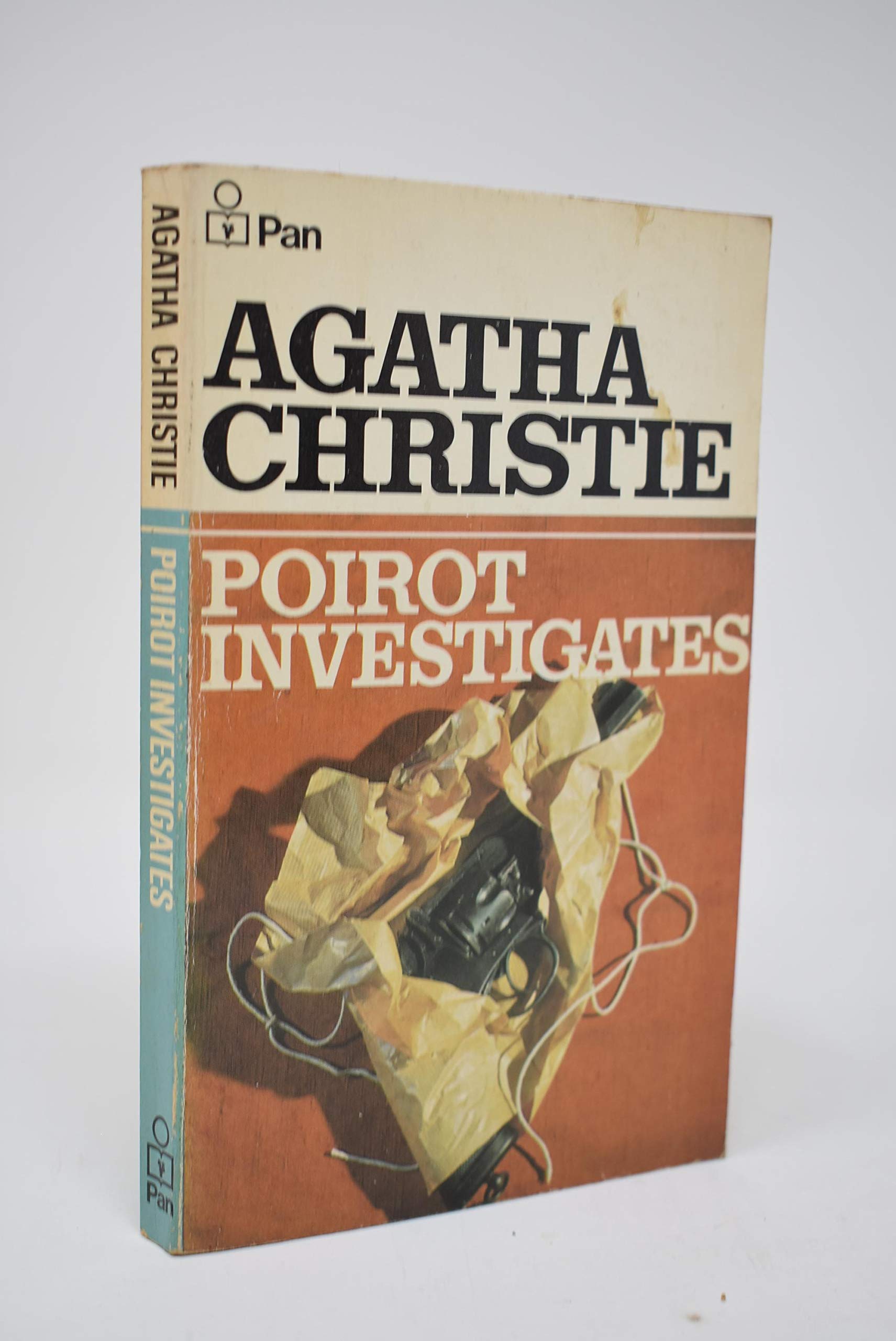A Critical Analysis Of Agatha Christie's Poirot Stories

Table of Contents
Poirot's Character and Methodology
Hercule Poirot, with his perfectly waxed mustache and fastidious nature, is more than just a detective; he's an icon. His personality is a captivating blend of eccentricities and unwavering brilliance. His reliance on logic and deduction, famously referred to as his "little grey cells," forms the bedrock of his investigative prowess. Poirot's methods are as distinctive as his appearance. He meticulously observes crime scenes, employing a systematic approach to gather evidence. His skill in interviewing suspects is unparalleled, his keen observation allowing him to detect even the slightest inconsistencies in their testimonies. He possesses a unique ability to piece together seemingly disparate clues, creating a comprehensive picture of the crime and the culprit's motivations.
- Detailed examination of his "little grey cells": Poirot's "little grey cells" aren't just a catchy phrase; they represent a methodical, almost scientific approach to deduction. He meticulously analyzes every detail, connecting seemingly insignificant observations to form a complete picture.
- Analysis of his strengths and weaknesses: While his powers of deduction are exceptional, Poirot isn't without flaws. His arrogance and occasional disregard for the feelings of others can sometimes hinder his investigations. He is also known for his reliance on his own intellect and can sometimes struggle with cases requiring collaborative efforts.
- Comparison of his methods with other famous fictional detectives: Comparing Poirot's methods to those of Sherlock Holmes, for example, reveals distinct differences in their approaches, highlighting the diversity within the genre of detective fiction. While Holmes is more intuitive, Poirot is more methodical and analytical.
Recurring Themes and Motifs in Poirot's Cases
Agatha Christie's Poirot novels are rich in recurring themes that explore the darker aspects of human nature. Betrayal, jealousy, greed, and the complexities of class conflict are woven seamlessly into the narratives. These themes, far from being mere plot devices, contribute significantly to the enduring appeal of the stories. They offer a glimpse into the human psyche, prompting readers to contemplate the motivations behind seemingly inexplicable crimes. Christie's mastery of narrative structure and her use of plot twists keep readers guessing until the very end. The suspense is meticulously crafted, often involving red herrings and unexpected revelations that challenge the reader's assumptions.
- Examination of specific themes in selected Poirot novels: In Murder on the Orient Express, class conflict and revenge are central themes. Death on the Nile explores themes of obsession and jealousy. And Then There Were None delves into the darker aspects of human nature, examining the consequences of guilt and retribution.
- Analysis of the use of red herrings and unexpected plot twists: Christie is a master of misdirection, skillfully planting red herrings to mislead both the reader and Poirot himself. The unexpected plot twists are carefully orchestrated, leaving the reader constantly surprised.
- Discussion on the social commentary embedded in Christie's stories: Christie's novels often offer subtle yet insightful social commentary, reflecting the societal norms and prejudices of her time.
The Evolution of Hercule Poirot as a Character
While Poirot maintains his core characteristics throughout the series, subtle changes in his personality and approach to crime-solving are evident. As he ages, we see a slight softening of his initially rigid personality. He shows glimpses of empathy and even vulnerability, particularly in later novels. This evolution adds depth to the character and makes him more relatable, despite his eccentricities.
- Comparison of early Poirot stories with later ones: Early Poirot stories showcase a more arrogant and self-assured detective. In later novels, a touch of weariness and a hint of reflection are evident.
- Analysis of the impact of aging on his capabilities and approach: The passage of time affects even Poirot. While his intellect remains sharp, his physical capabilities may decline, forcing him to adapt his investigative methods.
- Discussion of the emotional depth (or lack thereof) of Poirot's character: While Poirot is often portrayed as emotionally detached, a closer examination reveals moments of genuine emotional depth, adding complexity to his character.
Agatha Christie's Writing Style and its Contribution to Poirot's Success
Agatha Christie's writing style is as crucial to Poirot's success as the character himself. Her masterful use of suspense, pacing, and red herrings keeps readers enthralled. The narrative voice is clear and concise, allowing the reader to follow the detective's thought process without confusion. Christie skillfully employs foreshadowing and misdirection, creating a layered narrative that keeps the reader guessing. The settings, meticulously described, add to the atmosphere, enhancing the overall reading experience.
- Analysis of Christie's use of point of view and narrative voice: Christie masterfully uses a third-person limited perspective, allowing the reader insight into Poirot's thought process without sacrificing the element of surprise.
- Discussion of the role of setting and atmosphere in creating suspense: The settings of Christie's novels are often integral to the plot, creating a specific atmosphere that enhances the suspense and intrigue.
- Examination of Christie's masterful use of foreshadowing and misdirection: Christie's subtle use of foreshadowing creates suspense, while her misdirection keeps the reader guessing until the very end.
Conclusion
Agatha Christie's Hercule Poirot stories stand as a testament to the enduring power of masterful storytelling. Poirot's unique character, his meticulous methods, and the recurring themes of human nature explored in the novels, combined with Christie's superb writing style, have cemented his place as one of literature's most iconic detectives. The evolution of Poirot himself adds a layer of complexity to the narrative, making him a truly compelling and relatable character. The impact of these stories extends beyond the realm of mystery novels, influencing the genre and popular culture in countless ways. To fully appreciate the genius of Agatha Christie, delve into the world of Hercule Poirot – read her works, analyze the plots, and further explore the enduring appeal of these remarkable detective novels. Unlock the mysteries of Hercule Poirot and discover the brilliance of Agatha Christie's crime fiction for yourself.

Featured Posts
-
 Diner Exclusif Le Rooftop Des Galeries Lafayette Biarritz Avant Pau Avec Imanol Harinordoquy Et Jean Michel Suhubiette
May 20, 2025
Diner Exclusif Le Rooftop Des Galeries Lafayette Biarritz Avant Pau Avec Imanol Harinordoquy Et Jean Michel Suhubiette
May 20, 2025 -
 To Tampoy Ton Fonon Aneksereynites Ptyxes Tis Ypothesis
May 20, 2025
To Tampoy Ton Fonon Aneksereynites Ptyxes Tis Ypothesis
May 20, 2025 -
 Transfert Jaminet Les Declarations De Kylian Sur L Argent Du Transfert De Son Frere
May 20, 2025
Transfert Jaminet Les Declarations De Kylian Sur L Argent Du Transfert De Son Frere
May 20, 2025 -
 Highfield Rugby Appoints James Cronin As Head Coach
May 20, 2025
Highfield Rugby Appoints James Cronin As Head Coach
May 20, 2025 -
 Agatha Christie L Integrale Mysteres Et Enquetes
May 20, 2025
Agatha Christie L Integrale Mysteres Et Enquetes
May 20, 2025
Latest Posts
-
 The Strategic Implications Of The Us Typhon Missile System In The Philippines A Case Study Of Chinas Growing Influence
May 20, 2025
The Strategic Implications Of The Us Typhon Missile System In The Philippines A Case Study Of Chinas Growing Influence
May 20, 2025 -
 Us Immigration Ban Miami Hedge Fund Manager Accused Of False Statements
May 20, 2025
Us Immigration Ban Miami Hedge Fund Manager Accused Of False Statements
May 20, 2025 -
 Strengthening Philippine Defenses The Deployment Of The Us Typhon Missile System And Its Impact On China
May 20, 2025
Strengthening Philippine Defenses The Deployment Of The Us Typhon Missile System And Its Impact On China
May 20, 2025 -
 Miami Hedge Fund Executives Us Ban Accusations Of Lying To Immigration Officials
May 20, 2025
Miami Hedge Fund Executives Us Ban Accusations Of Lying To Immigration Officials
May 20, 2025 -
 Assessing The Effectiveness Of The Us Typhon Missile System In The Philippines Against Chinese Aggression
May 20, 2025
Assessing The Effectiveness Of The Us Typhon Missile System In The Philippines Against Chinese Aggression
May 20, 2025
